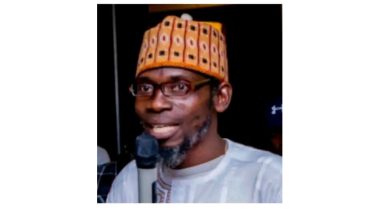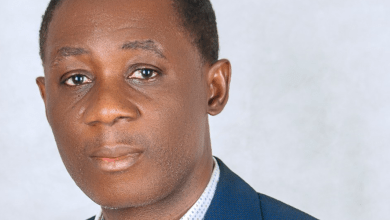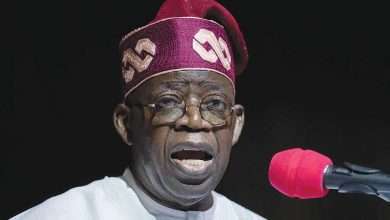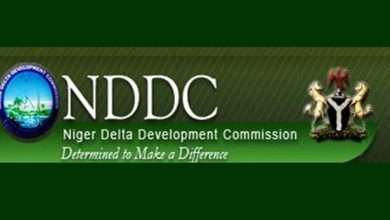Biography of Timothy Naakuu Paul Birabi: The Father of Modern Ogoni
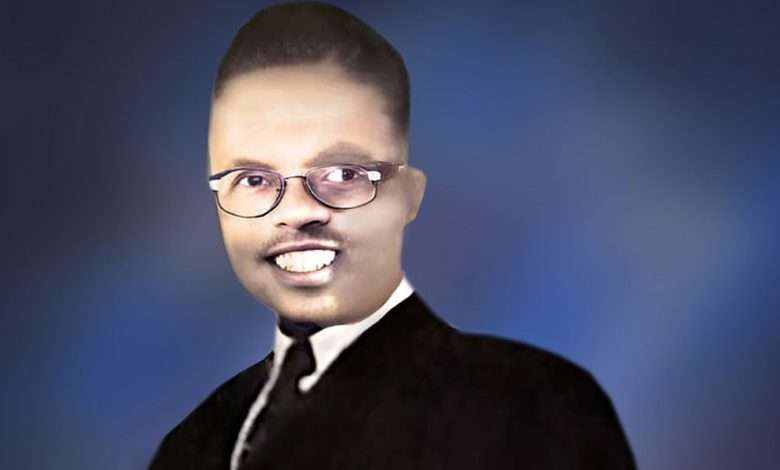
Timothy Naakuu Paul Birabi is generally regarded as the father of modern Ogoni nationalism. He stamped his style on the political, social and educational development of the Ogoni people and no history of Ogoniland would be complete without reference to this great mind and his contributions to the community and the advancement of his people.
Still revered by all Ogoni people , long after his death, he is accepted as the greatest leader the Ogoni community has ever had. He is yardstick against which subsequent leaders will be measured and his name still conjures amongst the Ogoni a reverence and call for unity which no other leader before or since has been able to achieve.
Heritage: From Humble Beginnings
Naakuu Paul Birabi, the second son of chief Paul Birabi Nwinya was born in Yeghe village in what is now Gokana Local Government Area, in 1887. Like most people of his time Chief Paul Birabi Nwinya was brought up as a farmer. When Anglican however brought Christianity to the Ogoni area at the beginning of the twentieth century he was one of the early converts and, by his diligence and devotion, he was able to read the Bible and was baptized in 1916. He was also a successful farmer who was highly respected in the community. His high esteem among the Ogoni tribe was latter confirmed by his appointment as one of the seven native court judges selected to serve at the Native Court of Sogho in 1924. Court was established by the British Administration in 1915 to deal with disputes of a customary nature and was the only native court serving all Ogoni until it was decommissioned and transferred to Kono in 1933.
Chief Paul Birabi Nwinya married Miss Lucy Baabaa Gbarakoo in 1915 Miss Lucy Gbarakoo was born in 1900 to an illiterate but comparatively rich family in Yeghe. She never attended school and, like her kin, was expected to be married off at an early age. Indeed the Ogoni like many other traditional societies believed a woman’s good character was best preserved if she was not exposed to the temptations of life as a spinster for long and so preferred that their daughters were married off early.
Early Years & School (1916 – 1934): The Importance of Education
Timothy Naakuu Paul Birabi was born to Chief Paul Birabi Nwinya and Mrs Lucy Baabaa Gbarakoo in October 1916 at Yeghe. At that time there were only three elementary school in Ogoni which were at Kano, Nwebiara & Bodo. However, the missionaries established church classes in every village that taught the new converts to Christianity the basic rudiments and practices of their religion. It was during one of these class sessions that Reverend E.T. Jumbo (later known as Bishop E.T. Dimieari) took an interest in the brilliant little Timothy Naakuu Paul Baribi and decided to take him along to Bonny. When Timothy Naakuu Paul Birabi arrived in bonny in 1925 Rev. E . T. jumbo got him enrolled at the St. Stephen School. Subsequently he gained admission into Dennis Memorial Grammar School, Onitsha in 1932, one of the well known Missionary Secondary Schools in the then Eastern Nigeria.
Timothy Naakuu Paul Birabi was confronted with challenges from cradle to the grave and his ability to tackle these challenges showed him to be a determined and resilient character. Timothy Naakuu Paul Birabi doubled as a dependable domestic [assistant to] Rev. Jumbo while in elementary school.
Furthering Educational Development (1934 – 1946) : Teaching & Work in the Community
Timothy Naakuu Paul Birabi past the junior Cambridge examination in 1934 and in the same year was admitted into St. Mark’s Teachers Training College, Awka. He obtained his teachers grade two certificate in 1937 and was then posted to teach at Dennis Memorial Grammar School, Onitsha, where he was once a student.
Timothy Naakuu Paul Birabi thought mathematics and geography and while on the staff of D.M.G.S, sat for and past the London Matriculation Examinations. He was then granted admission to the Achimota College, Ghana (former Gold Coast) in 1941, made possible by the receipt of a two scholarship by the church missionary society to undertake the course. While studying at Achimota College he sat for the immediate bachelor of arts degree examination in 1943. By 1943 when he returned from Achimota college with his B.A (Inter) he was the only Ogoni man who had been to the University.
While awaiting the result of his B.A (Inter) Timothy Naakuu Paul Birabi returned to Nigeria and was developed by the mission to teach at St. Cyprian’s School, Port Harcourt in June 1943. Timothy Naakuu Paul Birabi was confirmed to have past the B.A (Inter) Examination with a distinction in Mathematics and Geography and was posted by the Mission to teach at Okirika Grammar School.
The Okirika Grammar School was opened in 1940 when the Dennis Memorial School, Onitsha could no longer satisfy the educational needs of the Church Missionary Society. It was only the second post primary institution that was opened by Church Missionary Society in what was then Eastern Nigeria and in 1943 Timothy Naakuu Paul Birabi was appointed the vice principal of Okirika Grammar School. He held this post until 1946 when he obtained another mission scholarship to complete his degree course.
In order to maintain close contact with the Ogoni people he opted to ride between Yeghe (his village) to Okirika Grammar School every day for almost a year, covering a distance of fifty kilometres with every trip. His students certify that he was not only a good and effective teacher in Mathematics and Geography but also a role model. His charismatic personality inspired respect amongst students and fellow staff alike.
University Education Abroad (1946 – 1948): New Frontiers
Timothy Naakuu Paul Birabi left for Southampton University in the United Kingdom in September 1946 and after two years at the University achieved a B.A. (Hons) degree in mathematics. He was also awarded the fellow of the Royal Geographical Society (FRGS) of Kings College London in 1948.
Having obtained his first degree, Timothy Naakuu Paul Birabi was enrolled to a post-graduate diploma in education for subsequent events were to prevent him from obtaining this diploma. It was during the late forties when West African Students started agitating for some degree of political independence for the colonies and Timothy Naakuu Paul Birabi was at the vanguard of the Nigerian participating in this movement. This didn’t sit well with his missionary sponsors, the Church Missionary Society (CMS) who requested the colonial government in power in Nigeria to repatriate Timothy Naakuu Paul Birabi on the grounds of ill-health. The Church Missionary Society was successful in their request and Timothy Naakuu Paul Birabi was repatriated to Nigeria in August 1948. His claims of racial discrimination and mistreatment as a result of his political activities were met with indifference by the C.M.S.
Returned to Nigeria (1948 – 1952): Building Family and Community Roots
On arrival in Nigeria, he was posted back to Okirika Grammar School as a vice Principal. He decided to get married and his choice of bride was Victoria Kpoona, an eighteen year old from his village. Their marriage took place in 1949 by native law and custom as the new Mrs T.N. Paul Birabi completed her elementary education. Their union was blessed with two children, Bennett Nwiezor Birabi and Ruth Lekie Birabi, a son and a daughter born to the couple 1950 and 1952 respectively.
Timothy Naakuu Paul Birabi was confronted with challenges and his ability to tackle these challenges showed him to be a determined and resilient character. The obstacle and challenges he faces weren’t far removed from the prevalent circumstances of his time. When he returned from Britain in 1948 his burning desire was to arouse the political consciousness of the people and campaign for them to receive more formal education. He literally got on his bike and rode from village to village after school and on his days off until he had visited all the 100 villages(now 126 villages) of the Ogoni nation. At each village he was educational ambassador, highlighting the need for community based educational programmes as the only way to develop the community. This was a very unattractive proposition at a time when schools were few and expensive but he met with some success. During these visits he also managed to arouse the political awareness of the people which was a real achievement across what was a vast geographical expanse given the inadequate transportation facilities.
Timothy Naakuu Paul Birabi was a man of many parts. Among other contributions to the Ogoni community was the introduction of the Boy scouts into schools in Ogoni. He also rose to the rank of the king Scout in his days at St. Mark College, Akwa. His tutorial didn’t end in the classroom; he also taught people how to manufacture titles from locally sourced clay and also started the construction of the St. Peter’s Cathedral in his Village, Yeghe. He preached and practiced the dignity of labour in a society that formal education meant the rejection of manual labour. He openly espoused the idea that formal education was not mutually exclusive from the traditional rural activities such as farming and local beverage production (including palm wine and gin). He led by example, engaging in the part-time production of pottery and tiles from the local clay. In his mind, this was a direct application of his education. He was also an accomplished organist who taught his students to play in his spare time, many of whom became accomplished organist themselves, for example Professor Adams Fiberesima.
The Final Chapter (1952 – 1953): Establishment of Birabi Memorial Grammar School, Bori & NCNC Party Conference
Conscious of the value of education and starkly aware that there was no post primary education in the Ogoni community, Timothy Naaku paul Birabi was driven to provide this facility for the people. After a determined, lengthy and full participatory consultation process with his people, the O.S.R.A (Ogoni State Representative Assembly – a gathering of representatives of all the section of Ogoni) was persuaded by timothy Naakuu Paul Birabi to undertake the building of a secondary school. Suggestion of technical collage were vehemently and unanimously opposed as the people now wanted their children to attain the same level of education which Timothy Naakuu Paul Birabi had achieved. His ability to awaken in his people, the need for unity among the tribe and the importance of education were all indisputable and tangible contribution to the Ogoni community. It is a great credit to his memory that the first of such institutions which he started against all odds but did not live to see completed, became the epic-entre of Ogoni post primary education.
With the support of Mr.F. M. A. Sarowiyo, Timothy Naakuu Paul Birabi was able to convince the O.S.R.A. to undertake the project and levies were made on four of the six clans in Ogoni and on traditional rulers in each village. The Gokana and Eleme clans sought to organise the building of their secondary schools with the aid of the Roman Catholic Church. Nevertheless, the levies raised by the people of Babbe, Nyo Khana, Ken Khana and Tai ensured that the foundation stone of the college was laid at Bori in November 1952. On completion, the school was ultimately handed over to the church Missionary society to run as a Secondary Grammar School but, sadly, work was still in progress when Timothy Naakuru Paul Birabi died in November 1953.
The school was named Birabi Memorial Grammar School after his death and remains so today. Furthermore, it was to his credit that when he passed on in 1953, the missionaries had established a school in almost every village in Ogoni. While he was alive he had also persuaded the Church Missionary Society, his sponsors, to establish more primary schools in the Ogoni Community and this underlined significant development given that in 1916, the year of his Birth, there were only three primary schools in Ogoni at Kono, Nwebiara and Bodo.
When Timothy Naakuru Paul Birabi left the safety of his teaching profession to join the boisterous field of politics his challenges seemed to increase. In 1953 he was fully involved in the crisis that had entangled the National Council of Nigeria and with the Cameroons (N.C.N.C) hierarchy at the Eastern House of Assembly in Enugu. The Council of ministers led by Prof. Eyo-Ita had rebelled against the N.C.N.C party and the Eastern House of Assembly was dissolved just one year after the legislature had been introduced. This meant that he had to go back to the Ogoni electorate to seek re-election. His reputation before his death stretched beyond the precincts of his community and he had acquired national significance as a member of Nigeria’s highest legislative chamber the Federal House of Representatives.
It was as a member of N.C.N.C. team that he went to London in 1953 along with representatives of Northern People Congress (NPC) and Action Group Party to negotiate with British Government at constitutional conference that ushered in autonomous Government and subsequent independent for Nigeria.
Although a member of the official N.C.N.C. delegation at that time he was also the president of River’s association, an organisation set up to campaign for special treatment in the provision of social amenities for the Niger Delta people of Nigeria. Timothy Naakuu Paul Birabi championed the proposal of chief Dappa Biriye for treating the people of the Niger Delta, which include the ogoni people, as unique area requiring a special development programme. It was these shared view that led the British Government to institute the Willink commission of inquiry in 1957 to explore the demands of the Niger Delta for the creation of a separate state to cater for peculiar needs of its people was either understood by their neighbours in what was then eastern Nigeria.
The commission headed by British administrator Mr. Henry Willink did not recommend the creation of a separate state. However, it recommended that because of specific challenges of the region and what appeared to be neglect by the Government of eastern Nigeria, the Federal Nigerian Delta Development Authority be established to find solution to address the problem of the region. These were all the precursors to the establishment of the present Rivers State which was created by the Federal Military Government in May 1968. Indeed Timothy Naakuu Paul Birabi M.H.R. (Member House of Representatives) had within his short spell with the N.C.N.C. made such an impact that he was already positioned as Minister for Education following the 1953 elections.
On his return to Nigeria in October 1953 from the Constitution Conference, he found his wife had fallen ill. Sadly Mrs Paul Birabi never recovered and later passed away from acute malaria shortly afterwards on 11th October 1953 at the age of just twenty two. This tragedy left Timothy Naakuru Paul Birabi broken-hearted and with two small children. He fell ill himself shortly afterwards and was taken to General Hospital in Bori. However on the 23rd November 1953 Timothy Naakuru Paul Birabi passed away at the age of 37 throwing the entire Ogoni community into mourning.
Legacy
Timothy Naakuru Paul Birabi path to greatness is connected with various activities and achievements during the last five years of his life. These were so profound that the history of the change which occurred in the social, educational and political history of Ogoni read like the history of the life and achievements of Timothy Naakuru Paul birabi. He was a leader and motivator and his personality was embossed on the mode of the various changes that occurred within Ogoni between 1948 and 1953. Never before or since has such a profound, lasting and momentous change occurred within Ogoni. Even if one concedes that the changes were bound to occur, the timing and style of these changes were certainly attributable to his leadership and sheer force of personality. Furthermore, he was the first Ogoni man not only to obtain an academic degree, but to critically use his education as an instrument to better his people by addressing fundamental issues of development.
Socially the Ogoni community into which Timothy Naakuru Paul Birabi was born was essentially an illiterate one. Engrossed in agricultural pursuits, the Ogoni appeared to be under the yolk of their more civilized neighbours. As such the Ogoni nationality owes her exposure in educational pursuits and achievements in the 1950s and 60s both to his personal example and his mission. The success of Timothy Naakuru Paul Birabi the first Ogoniman who rose from humble beginnings to frame through the attainment of University education – is still a shining beacon of what can be achieved if one applies oneself to academic pursuit for the benefit of the community.
For a man from one of the smallest tribes in Nigeria to have been held in such high esteem by colleagues from all parts of the region in the National Council of Nigeria and the Cameroons (N.C.N.C) was proof of the recognition of Timothy Naakuru Paul Birabi’s qualities and abilities among his party members. Although death deprived the nation of exploiting his full potential, it is a tribute to his memory that his potential was acknowledged by the party hierarchy.
His unrelenting representation of his people is still, to this day unparalleled. He pressured the N.C.N.C government of Eastern Nigeria to grant scholarship to qualified sons of Ogoni to study abroad. Two prominent beneficiaries were Messrs Monday Danwi (Medicine) and Ignatius Kogbara (History and Political Science). By spearheading the establishment of post primary schools in Ogoni he sought to bring education nearer to his people. Amongst all his achievements and contributions to his community, one intangible but immensely important milestone stands out and has lived on long after his death. Administratively, the Ogoni were treated as an appendage of the Opobo and administered as part of the Calabar province. Indeed it is due to Timothy Naakuru Paul Birabi and a small number of other Ogoni leaders that Ogoni has its separate identity today. He preached the unity of the Ogoni and the right to equality with their neighbours. To the Ogoni, maligned and treated with derision by their more educated and wealthier neighbours, Timothy Naakuu Paul Birabi’s abilities and achievements stood unparalleled and helped to promote the confidence and pride of the people. As such the Ogoni have since held their own, politically and socially.
Dr. Azikiwe’s funeral service tribute at the grave side of the late Timothy Naakuru Paul Birabi, MHR., B.A., F.R.G.S. still remains the most apt description of this general, charismatic son of Ogoni:

